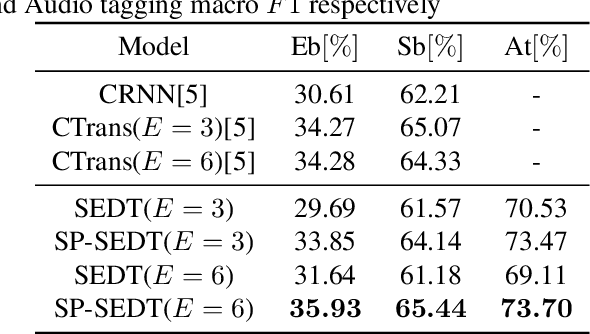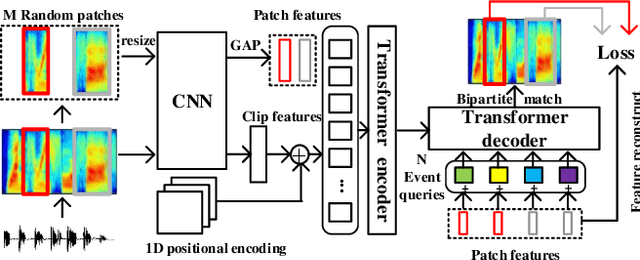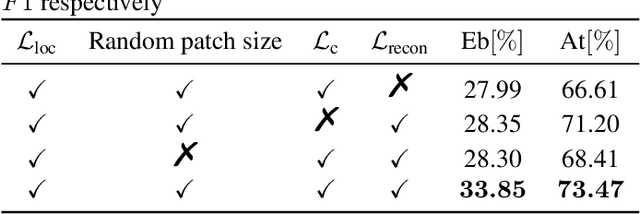SP-SEDT: Self-supervised Pre-training for Sound Event Detection Transformer
Paper and Code
Nov 30, 2021



Recently, an event-based end-to-end model (SEDT) has been proposed for sound event detection (SED) and achieves competitive performance. However, compared with the frame-based model, it requires more training data with temporal annotations to improve the localization ability. Synthetic data is an alternative, but it suffers from a great domain gap with real recordings. Inspired by the great success of UP-DETR in object detection, we propose to self-supervisedly pre-train SEDT (SP-SEDT) by detecting random patches (only cropped along the time axis). Experiments on the DCASE2019 task4 dataset show the proposed SP-SEDT can outperform fine-tuned frame-based model. The ablation study is also conducted to investigate the impact of different loss functions and patch size.
 Add to Chrome
Add to Chrome Add to Firefox
Add to Firefox Add to Edge
Add to Edge